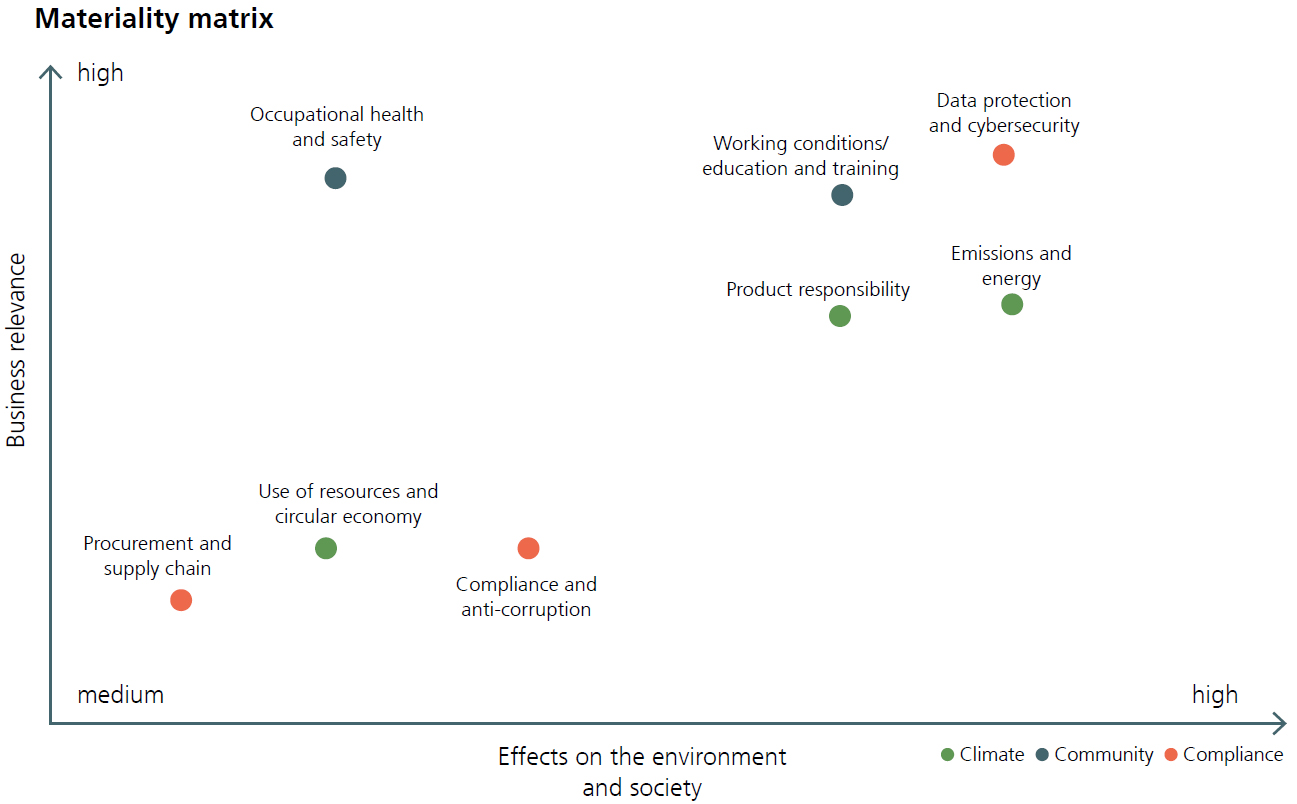For our fourth sustainability report we conducted a new materiality analysis in 2023. This involved defining 13 topics which, on the one hand, are relevant to long-term business success and, on the other hand, are relevant with respect to important effects on the environment and society. The analysis was based on frameworks such as the GRI Standards, the Swiss Code of Obligations (see also “Matching material topics with the interests of the Code of Obligations”) and an initial comparison with the European Sustainability Reporting Standards (ESRS). Additional references included a benchmark analysis with sustainability reports from competitors as well as ESG rating analyses.
A core team consolidated the selection of topics, and an evaluation was then carried out by 23 internal stakeholders including the CFO of the Arbonia Group, the sustainability officers, as well as representatives of the divisions from various areas of responsibility and various corporate functions. The individual topics were rated according to the two dimensions “Effects on the environment and society” and “Business relevance”. A threshold value was used to distinguish material topics from non-material topics. A workshop was then held where the stakeholders validated the results together with an external team of experts.
On this basis, nine of the 13 topics were rated as “material”; these topics are shown in the materiality matrix.
However, the following four topics were rated as non-material: “Equal treatment and opportunities for all”, “Social engagement”, “Water and waste water”, “Biodiversity and ecosystems”. While Arbonia is aware that these topics are also highly relevant when considering the topic of sustainability as a whole, their current significance with regard to both business success and effects on the environment and society was rated as significantly lower than that of the other topics in this reporting cycle. Nevertheless, Arbonia is also undertaking measures and initiatives in these non-material areas.

